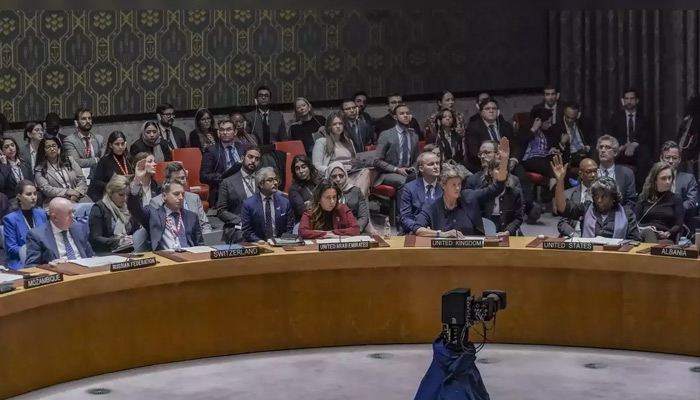The UN warned Friday that “many more will die” in Gaza from catastrophic shortages after nearly three weeks of bombardment by Israel in response to Hamas staging the deadliest attack in its history.
And it raised the alarm over “war crimes” being committed as the deadly Israel-Hamas conflict raged into its 21st day as the army said its troops had mounted another brief land incursion into Gaza as it prepares for a ground offensive.
Concern is growing about regional fallout from the conflict, with the United States warning Iran against escalation while striking facilities in Syria it says were used by Iran’s Islamic Revolutionary Guard Corps and others.
Israel has heavily bombarded Gaza since Hamas gunmen stormed across the border on October 7, killing 1,400 people, mostly civilians, kidnapping over 220 others, according to Israeli officials.
The health ministry in the Hamas-run Gaza Strip says the strikes have now killed 7,326 people, mainly civilians and many of them children.
“People in Gaza are dying, they are not only dying from bombs and strikes, soon many more will die from the consequences of (the) siege,” said Philippe Lazzarini, head of the UN’s agency for Palestinian refugees (UNRWA).
Israel has cut supplies of food, water and power to Gaza, notably blocking all deliveries of fuel saying it would be exploited by Hamas to manufacture weapons and explosives.
“Basic services are crumbling, medicine is running out, food and water are running out, the streets of Gaza have started overflowing with sewage,” Lazzarini said of the overcrowded territory where 45 percent of housing is reported to have been damaged or destroyed.
War crimes on both sides
In Geneva, the UN human rights office raised the alarm over war crimes, saying “the atrocious attacks by Hamas… amounted to war crimes” but also pointing to Israel’s Gaza bombardment.
“Nowhere is safe in Gaza. Compelling people to evacuate in these circumstances… and while under a complete siege raises serious concerns over forcible transfer, which is a war crime,” she said of Israel’s order for northern Gaza residents to flee south.
And a humanitarian catastrophe was unfolding for Gazans who were “being collectively punished” which “is a war crime”, she said.
A first tranche of critically needed aid was allowed in at the weekend but since then only 74 trucks have crossed. Before the conflict, the UN says an average of 500 trucks were entering Gaza every day.
“These few trucks are nothing more than crumbs that will not make a difference,” Lazzarini said, insisting Gaza needed a “meaningful and uninterrupted aid flow” and a “humanitarian ceasefire to ensure this aid reaches those in need”.
His words echoed an EU leaders’ call on Thursday for “continued, rapid, safe and unhindered humanitarian access and aid” to those in need via “humanitarian corridors and pauses for humanitarian needs”.
Between the bombardments and the fuel shortages, 12 of Gaza’s 35 hospitals have been forced to close, and UNRWA said it has had to “significantly reduce its operations”.
The agency also said 57 of its staff had been killed since the war began.
‘Never felt so helpless’
With tens of thousands of Israeli troops massed along the Gaza border ahead of a widely expected ground offensive, the army said it had staged another brief ground incursion into Gaza, the second in as many days.
“We carried out a ground operation in central Gaza… as part of preparations for the coming stages of the war,” army spokesman Daniel Hagari told reporters. The first incursion had targeted northern Gaza.
Hamas’ armed wing also said Israeli troops had tried to stage “a large-scale amphibious operation on Rafah’s coast” in southern Gaza at dawn but it had been thwarted by their fighters, saying the soldiers had “fled by sea, leaving behind a quantity of weapons”.
The Israeli army confirmed the operation, saying troops had struck “Hamas military infrastructure and… a compound” used Hamas militants.
The army also updated to 229 the number of hostages held by Hamas, many of whom hold foreign passports, with their families frantic with anguish over their fate.
“I have never felt such a feeling of helplessness,” said 23-year-old Ella Ben Ami whose parents were kidnapped. With recurring nightmares every single night, she says she feels “like the living dead”.
“Almost every family has lost someone. Nobody can comprehend that there are so many people that we won’t see again,” she told AFP as Israeli therapists said they had been overwhelmed by the sheer number of people traumatised by the bloodshed.
‘Wherever we go, we will die’
During the day, militants fired rockets towards Tel Aviv, where people could be seen running for cover as sirens wailed, AFP correspondents said. One stuck the city, wounding three people, one moderately and two lightly, medics said.
Despite Israel’s call for civilians in northern Gaza to move south for their safety, strikes have continued to hit southern areas, with many saying they could find nowhere to shelter.
“Wherever we go, we will die,” said Rahma Saqallah who fled her Gaza City home to go south with her family but decided to turn back after strikes killed her husband and three of her children.
“They told us to leave for the south and then they killed us (here),” she said on leaving the southern town of Khan Yunis to head home with her one remaining child.
Violence has also risen sharply in the occupied West Bank since the October 7 attacks, with more than 100 Palestinians killed and over 1,900 wounded.
Another four Palestinians were killed Friday during Israeli raids in the northern cities of Jenin and Qalqilya, the health ministry said.

